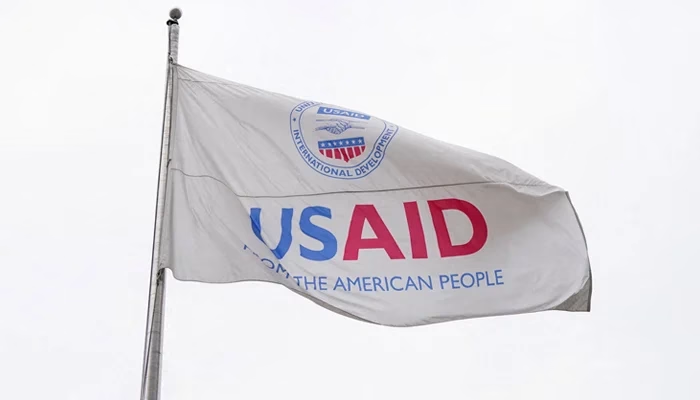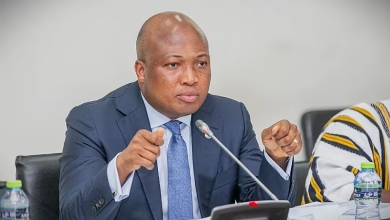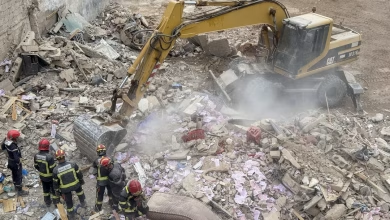Trump’s freeze on USAID should act as a wake-up call for Africa

- Trump’s 90-day aid freeze hit Africa's healthcare and HIV programs
- Mismanagement in some countries fuels aid dependence
- Africa must tackle corruption to reduce reliance on foreign aid
On January 20, President Donald Trump announced a 90-day freeze on foreign aid, affecting all financial assistance distributed by the U.S. Agency for International Development (USAID). This decision has sent shockwaves around the world, with Africa feeling the most significant impact.
In 2023, USAID allocated $12.1 billion to sub-Saharan African countries, aiming to enhance healthcare, provide food aid, and improve security. USAID also funds the U.S. President’s Emergency Plan for AIDS Relief (PEPFAR), which is a critical global initiative in the fight against AIDS. The freeze has left millions across Africa, who rely on U.S. support for vital services, facing an uncertain and daunting future.
On February 6, South Africa’s Health Minister, Aaron Motsoaledi, briefed Parliament on the severe impact of PEPFAR on the country’s HIV response. He revealed that PEPFAR contributes 17% of the total funding, amounting to 7.5 billion rand ($407 million), which supports programs for the 7.8 million South Africans living with HIV/AIDS – the highest number in the world. More than 15,000 healthcare workers, including nurses, pharmacists, and directors, rely on PEPFAR for their salaries.
The halt in funding has put South Africa’s HIV/AIDS efforts in a vulnerable position, exposing the country to the unpredictable political shifts of the Trump administration. However, the root cause of this “USAID crisis” lies in South Africa’s own failure to take full responsibility for its socioeconomic challenges, relying instead on foreign aid. As the continent’s most advanced economy, South Africa should not have become so dependent on PEPFAR, which has effectively become a key element of the nation’s healthcare budget.
This dependency is indicative of a larger issue: widespread corruption and mismanagement within the healthcare system and the government. Each year, South Africa loses billions of rand due to poor governance and corruption, which could otherwise be used to improve essential services, including HIV/AIDS care.
A glaring example of this mismanagement is Tembisa Provincial Tertiary Hospital (TPTH), which falls under the Gauteng Department of Health. In August 2024, the Special Investigating Unit (SIU) reported that corruption at TPTH had led to financial losses exceeding 3 billion rand, implicating senior hospital staff in the illicit activities. The hospital has long struggled with resource shortages, including a lack of specialized staff and equipment, which have contributed to preventable deaths.
The Gauteng provincial government alone incurred 9.879 billion rand in irregular expenditure in 2023-24. Across all 38 government departments and 27 state-owned enterprises (SOEs), the irregular expenditure for 2024 reached a staggering 69.35 billion rand. Compared to this, the $7.5 billion in U.S. aid to South Africa seems insignificant, as much of the nation’s funds are lost to corruption and inefficiency.
For South Africa to reduce or eliminate its reliance on foreign aid, it must address its internal governance issues, focusing on transparency, accountability, and effective management. Other countries, like Kenya, are also dependent on U.S. assistance, and like South Africa, they could benefit from improved self-reliance.
In Kenya, USAID and PEPFAR have contributed more than $16 million to Nyumbani Children’s Home, which supports HIV-positive orphans. However, without continued funding, thousands of vulnerable children risk falling ill or dying, and many others could lose access to vital HIV/AIDS counseling. Kenya, like South Africa, has the resources to support its own orphanages, but only if the government addresses corruption, prioritizes effective governance, and ensures that public funds are properly utilized.
Corruption in Kenya costs an estimated 608 billion Kenyan shillings ($4.7 billion) annually, about 7.8% of its GDP. This is a significant drain on the nation’s resources and an impediment to the development of its healthcare and social welfare systems. Kenya’s leadership must step up to take full responsibility for its disadvantaged citizens, including the children of Nyumbani Children’s Home, who should not have to depend on foreign aid for their survival.
Kenya’s President William Ruto, who appointed an unusually large administration in March 2023, has faced criticism for promoting corruption. Ruto was ranked second in the Organized Crime and Corruption Reporting Project’s 2024 Corrupt Person of the Year award, underscoring the challenges Kenya faces in overcoming the culture of corruption that undermines the nation’s potential.
Nigeria presents a similar case. In February 2024, the Nigerian government allocated $200 million to compensate for cuts in U.S. health aid, which had previously contributed more than $600 million in 2023 to the nation’s health budget. However, Nigeria’s socioeconomic problems, including rampant corruption, are largely self-inflicted. The country loses approximately $18 billion annually to financial misconduct and poor procurement processes, which hinders its ability to thrive.
Nigeria, like South Africa and Kenya, has the resources and potential to free itself from dependency on U.S. aid, but only if the government prioritizes strong, principled governance. The ongoing struggle for good governance is not only a matter of aid dependency but also a critical element of Africa’s postcolonial future.
From Zimbabwe to Uganda and Tanzania, African countries must work toward independence from Western aid. The continued reliance on foreign assistance, particularly when mismanaged by corrupt governments, is an untenable situation. African nations must take full responsibility for addressing the challenges faced by their underprivileged populations.
The future of everyday Africans should not hinge on U.S. aid or the shifting policies of Western politicians. Africa is more than capable of taking care of its own people if it prioritizes transparency, effective governance, and responsibility.






